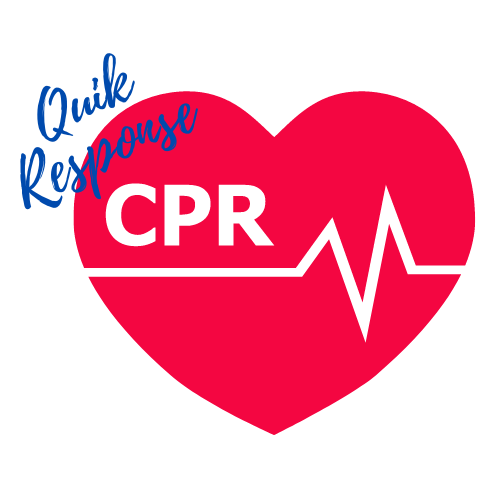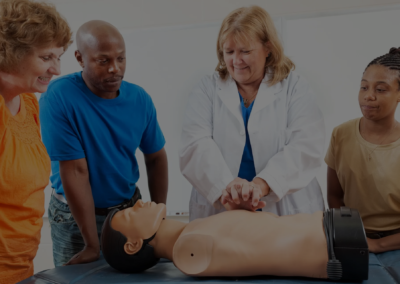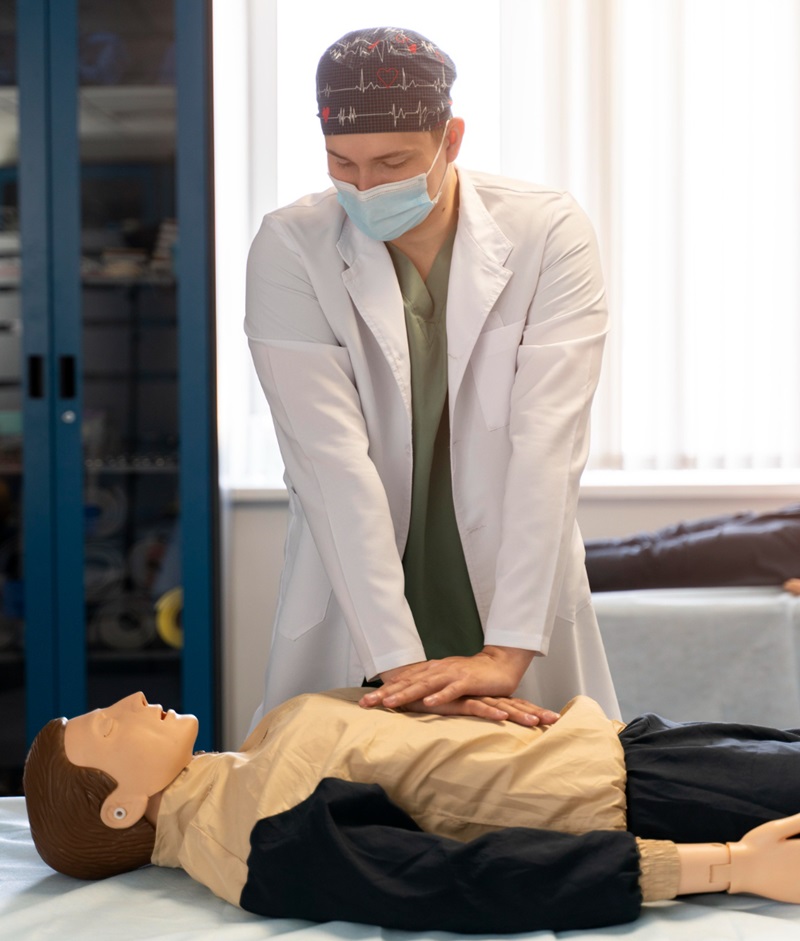CPR
Cardiopulmonary Resuscitation (CPR) is an emergency lifesaving procedure performed when the heart stops beating. Immediate CPR can double or triple the chances of survival after cardiac arrest. It involves a combination of chest compressions and artificial ventilation (mouth-to-mouth breathing) to manually preserve brain function until further measures can be taken to restore spontaneous blood circulation and breathing in a person experiencing cardiac arrest. Here are some key points about CPR:
1. Purpose: To maintain blood flow and oxygen supply to vital organs when the heart has ceased functioning.
2. Techniques:
– Conventional CPR: For healthcare providers and those trained, it involves chest compressions combined with mouth-to-mouth breathing at a ratio of 30 compressions to 2 breaths.
– Hands-Only CPR: Recommended for bystanders who witness an adult suddenly collapse. It involves compression-only CPR without mouth-to-mouth breaths.
3. Chain of Survival: CPR is a critical link in the Chain of Survival, which includes recognition of cardiac arrest, early CPR, rapid defibrillation, advanced resuscitation, and post-cardiac arrest care.
4. AEDs (Automated External Defibrillators): These devices can significantly increase a cardiac arrest victim’s chance of survival. Deployment of AEDs should not be limited to trained individuals, as prompt defibrillation is crucial.
Remember, knowing CPR can make a difference in saving lives!
BLS
CARDS ISSUED SAME DAY!
AHA: The American Heart Association strongly promotes knowledge and proficiency in CPR, BLS, ACLS, and PALS and has developed instructional materials for this purpose. Use of these materials in an educational course does not represent course sponsorship by the American Heart Association, and any fees charged for such a course do not represent income to the Association.
Hours
Monday-Friday: 9am – 6pm
Saturday: By appointment only
Sunday: By appointment only
ASK ABOUT OUR FREE HANDS ONLY CPR COURSE
info@QuikResponseCPR.com
© 2024 Quik Response CPR


